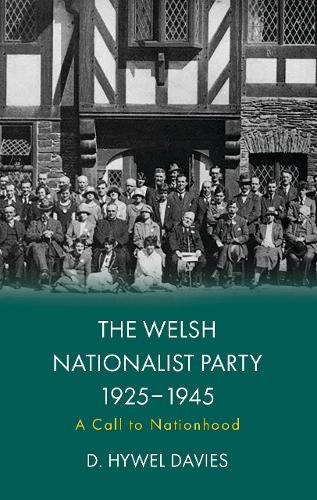
The Welsh Nationalist Party, 1925-1945: A Call to Nationhood
(Paperback, New edition)
Publishing Details
The Welsh Nationalist Party, 1925-1945: A Call to Nationhood
By (Author) D. Hywel Davies
University of Wales Press
University of Wales Press
22nd October 2025
New edition
United Kingdom
Classifications
General
Non Fiction
Politics and government
Physical Properties
Paperback
286
Width 138mm, Height 216mm
Description
This work examines the nature of the Welsh Nationalist Party from its foundation in 1925 to 1945 the philosophy and policies it embraced, the methods it used, and its organisational character.
The author's major conclusion is that the 'party' was not really a political party as such during the period under study, but a culturally oriented educational and social movement centrally concerned with the affirmation of Welsh identity and the fate of the Welsh language.
Despite the exhortations of party president Saunders Lewis, nationalists for the most part remained aloof from political campaigning, and it is suggested that frustration with the movement's impotence led to the radicalisation of method most dramatically represented by the Burning of the Bombing School in 1936.
Welsh nationalism was dominated by Saunders Lewis throughout the period. Attention is paid, however, to the limited but significant left-wing dissension regarding both his social philosophy and the views of the leadership group on international events.
Though some young nationalists received prison sentences for refusing to be conscripted during the Second World War, the real pointer to future action proved to be the University of Wales parliamentary by-election in 1943 when Lewis challenged the Welsh political establishment. Two years later the Nationalist Party engaged in as much electoral activity as during the previous twenty years. It took a new president in Gwynfor Evans and began to call itself Plaid Cymru.
